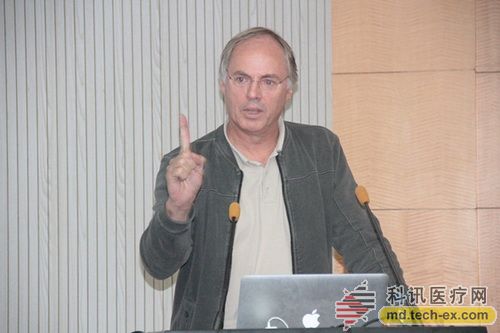Release date: 2015-05-12 The intestinal epithelium is the fastest cell renewal tissue in the human body, which can rapidly update and repair the intestinal mucosa, but this ability also brings certain risks. It has been found that intestinal crypt cells (Crypt stem cells) may initiate tumor formation and play an important role in tumor cell differentiation, proliferation and apoptosis. Using a medium containing stem cell nestin (WNT, R-spondin, epidermal growth factor EGF), mouse and human intestinal stem cells can be cultured for a long period of time to produce genetically and phenotypically stable epithelial organs. The research team led by Professor Hans Clevers, President of the Royal Academy of Arts and Royal Academy of Sciences and a member of the National Academy of Sciences, used the CRISPR/Cas9 technology to establish colorectal cancer (CRC) organs. The findings were published this week in the journal Nature. Colorectal cancer is usually developed slowly by adenomas, suggesting that colorectal cancer development is likely to be a process of acquiring genetic mutations. The researchers used CRISPR/Cas9 technology for human intestinal stem cells cultured in vitro, and introduced four of the most common colorectal cancer gene mutations (APC, P53, KRAS, and SMAD4). They screened for cells that had been mutated by removing growth factors from the medium. Studies have shown that cells with quadruple mutations can grow without any stem cell nestin and can tolerate the tumor suppressor drug Nutlin-3. After transplanting into mice, these cells grow into invasive tumors. It is worth noting that APC and P53 mutations are sufficient to trigger a wide range of chromosomal abnormalities (aneuploidy), a landmark event in tumor development. Not long ago, the research team used a similar method to introduce a mutation into the CRISPR system to establish a colorectal cancer model. Clevers pointed out that his model of colorectal cancer development can more closely reflect the development of tumors in vivo because they screened mutant cells and all sgRNAs target target mutation hotspots. Source: Biopass
"Nutritional fortifier is the process of adding one or more nutrients, or some natural foods, to foods according to their nutritional needs to improve their nutritional value. Food processed by fortification is called fortification food. Added nutrients, or substances containing nutrients, are called food fortifiers. Nutritional fortifier can make up for the defects of natural food, is conducive to the balance of nutrition, but also can maintain the natural nutritional characteristics of food, but also can simplify the treatment of the diet, increase convenience.
planet nutrition enhancers,nutrition water enhancers,nutrition absorption enhancer Shaanxi YXchuang Biotechnology Co., Ltd , https://www.peptidenootropic.com